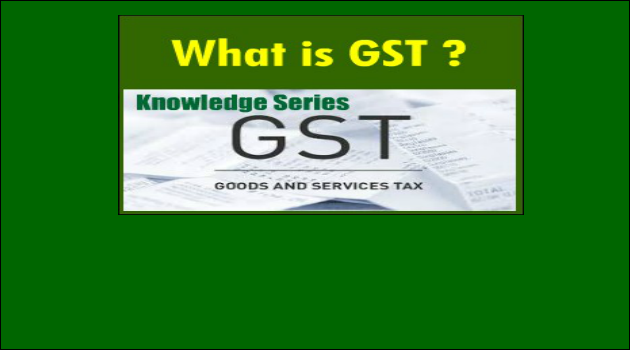Goods and Service Tax (GST) Knowledge Series 2
In the last series we have discussed about the special features of GST Law. In this issue we will discuss in brief about benefits and common problems in the ensuing GST Regime
As perceived from various announcements and circulars of CBEC, GST law is going to bring in the biggest indirect tax reform after independence of India with enormous change in the Indirect Tax system in the country. It is going to change demographics of each state with the increased consumption-based tax system; the destination state is going to get the tax. The Central Board of Excise & Customs (CBEC) governing and supervising GST laws is being renamed as the Central Board of Indirect Taxes & Customs (CBIC) in the GST regime.
As per various announcements made by CBEC, GST laws are framed to provide lots of benefits to various stakeholders including common Citizens (consumers) , businessmen (trade, commerce & industry) and the Governments (Central and states). As announced by CBEC, GST is a win-win situation for the entire country. Expectedly GST will lower the cost of goods/ services give a boost to the economy and make the Indian products and services globally competitive. GST aims at making India a common market with common tax rates and procedures and removing the economic barriers for an integrated economy at the national level. By subsuming or including most of the Central and State taxes into a single tax and by allowing a set-off of prior-stage taxes for the transactions across the entire value chain, it would mitigate the adverse effects of cascading and improve competitiveness and also improve liquidity of all types of businesses – trading, distribution, manufacture etc.
Benefits that may accrue to the stakeholders being common Citizens, Trade/Industry and the Government or the country as a whole on introduction of GST can be highlighted on the following points;
Advantages to the Citizens:
- Simpler tax system. GST is a destination based tax.
- It will bring reduction in prices of goods and services in most cases due to elimination of cascading.
- It aims at providing uniform rates throughout the country and simpler tax regime-with fewer rates.
- GST is largely technology-driven. It will reduce the human interface to a large extent and thus would lead to speedy decisions. GST will bring more transparency in indirect tax system.
- It may increase employment opportunity with more export and more production as explained below
Advantages accruing to the Trade/ industry:
- It will bring reduction in multiplicity of taxes and mitigation of cascading/double taxation. It follows a multi-stage collection mechanism. In this, tax is collected at every stage and the credit of tax paid at the previous stage is available as a set off at the next stage of transaction.
- Since the whole supply chain will be taxed at every stage with credit of taxes paid at the previous stage being available for set off at the next stage of supply, this will help the industry to take credit and the government to verify the correctness of taxes paid and the consumer to know the exact amount of taxes paid. It will bring greater transparency and disclosure in system through returns.
- GST will shift tax incidence to consumers through systematic way and thus benefit the industry through better cash flows and better working capital management
- It will help more efficient neutralization of taxes especially for export.
- No separate compliance of Indirect Taxes laws. Only GST laws need to be complied resulting in reduction in compliance costs. Multiple records keeping are not necessary. No statutory forms or statutory registers are required to be maintained. Books can also be maintained in electronic form. The taxpayers would only need to maintain records and show compliance in respect of CGST, SGST/ UGST and IGST.
- GST Audit is required to be conducted by a Chartered Accountant or Cost Accountant for a firm having turnover Rs. 1Crore.
Advantages accruing to the Government and the country as a whole;
- GST will give a major boost to the ‘Make in India’ initiative of the Government of India by making goods and services produced in India more competitive in the national market as well as in the international market. Also all imported goods will be subject to IGST which is equivalent to CGST + SGST. This will bring equality in taxation on local products and imported goods.
- In the GST regime, exports will be zero-rated in entirety unlike the present system where refund of taxes sometimes does not take place due to different nature of indirect taxes between the Centre and the States. This will boost Indian exports enabling improvement in the balance of payments position. Exporters with clean track record will be rewarded by getting immediate refund of 90% of their claims arising on account of exports, within 7 days.
- Precisely GST will boost to manufacturing activity, exports and consequent generation of more employment resulting in reduced poverty and increased GDP growth. It is estimated to increase the GDP growth by 1.5 to 2%.
- It will improve the overall investment climate and boost Foreign Investment in Indian industry
- Uniform SGST and IGST rates are expected to reduce the scope for tax evasion.
- GST is expected to increase Government Revenue by widening the tax base and improving the taxpayer compliance
Major Disadvantages in GST Regime:
- Higher tax burden for manufacturing SMEs; Small manufacturers’ tax burden will increase since under the existing excise laws, only manufacturers with a turnover more than Rs.1.50crores have to pay excise duty, but in the GST regime they will come under GST when turnover will be more than Rs. 20 lakh. Thus GST will increase the tax burden for many manufacturing SMEs.
- Increase in Tax management expenses: Currently many small businesses do not engage professionals. They themselves calculate and pay taxes and file returns on their own to save costs. But in the GST regime, they will require professional assistance, as the entire system is IT-driven under GSTN and it is a completely new tax system. Though this system may be good for professionals, the small businesses will have to bear the additional costs of hiring experts. Furthermore businesses have to bear expenses to train their employees in GST compliance.
- Need for new software for big business houses: Currently most of big business firms have been using accounting software for filing tax returns for excise, VAT, and service tax already incorporated in the . The change to GST will require them to purchase new software or ERPs for filing GST returns and compliances, which results in additional costs of purchasing new software.
- Implementation of GST during the middle of year: The tentative GST implementation date is 1stJuly 2017 if not extended. Thus implementation of GST during the middle of year means running both tax systems parallel and entail additional burden, more hassles and expenditure for businesses in 2017-18 .
- Possible increase in prices of certain goods due to increase in tax rates: As proposed by the GST Council, GST has only 4 tax rates of 5%, 12%,18%& 28%. So in many sectors, tax burden will increase which in turn will increase the price of final goods. Again Composition scheme is available only for businesses selling goods, but not available to service providers. It will also affect price.
- Problems for e-commerce: Nowadays, many SMEs operating e- business or on-line selling through their own websites or through third party websites will be required to register for all the states to sell to different parts of India under GST regime. Furthermore they will not be eligible for composition scheme and will be required to pay taxes like any large organization.
We know, every Change has its own merits and demerits. Being a revolutionary and the most historic tax reform, GST is sure to bring some challenges along with many benefits for all concerned. Hopefully Government will pay proper attention to the problems being apprehended by us so as to make this revolutionary tax reform, the best in the world and acceptable to us all.
In the next issue we will discuss about Levy and Collection of Tax under GST Regime.
- R. C Guria. M.Com, FCA. FIII


